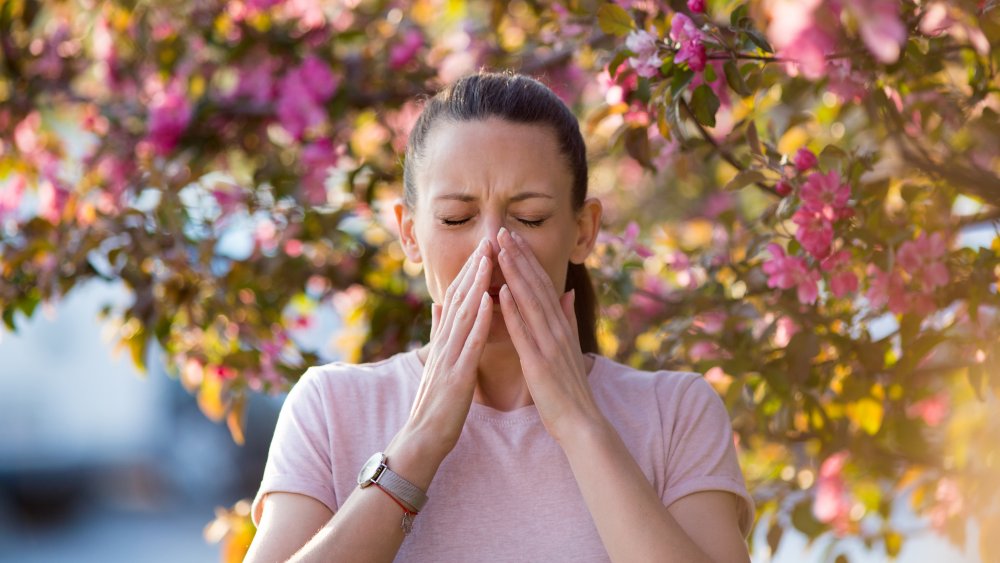The Science Behind Sneezing Explained
Sneezing is something that happens to all of us, but it's something we have little control over and as a result is usually something we do without thinking. As Tim Mynes, D.O., an emergency medicine physician at MedExpress Urgent Care in Virginia, told MedExpress, "Sneezing is one of our body's most common reactions, but we don't often take the time to stop and think about how and why it happens." He went on to explain, "Sneezing is simply an involuntary release of air that helps the body to get rid of irritants in our nose and throat, like allergens, dirt, and dust." But what exactly is the science behind sneezing?
Sneezing is "a well-coordinated action involving a lot of muscles and nerves beginning with a trigger," Dr. Erich Voigt, M.D., clinical associate professor and chief of general/sleep otolaryngology at NYU Langone Health, told SELF. Obvious triggers include dirt, pollen, and perfume, while less obvious triggers are pathogens, which are cold and flu viruses. Sneezing is our bodies way of expelling anything that may cause harm.
Sneezing is one of the many ways our bodies protect themselves
Whatever the trigger may be, your nerves immediately signal the brain. "The signal to the brain causes a reflex," Eli Meltzer, an allergist who is co-director of Allergy and Asthma Medical Group and Research Center in San Diego told NPR. "That reflex goes to the face and nose and chest. The person takes a deep breath because of that. Then they explode this air from their lungs through the mouth and nose." It's that simple!
But don't even think about holding your next sneeze in. As allergy and clinical immunology specialist, Dr. DeVon Preston, M.D, explained to the Cleveland Clinic, "If we didn't sneeze, our bodies could allow potentially damaging substances into our sinuses or lungs." He continued, "Some people might sneeze because of viral or bacterial infections. If you don't sneeze, mucus can accumulate and be forced back into the Eustachian tubes."


